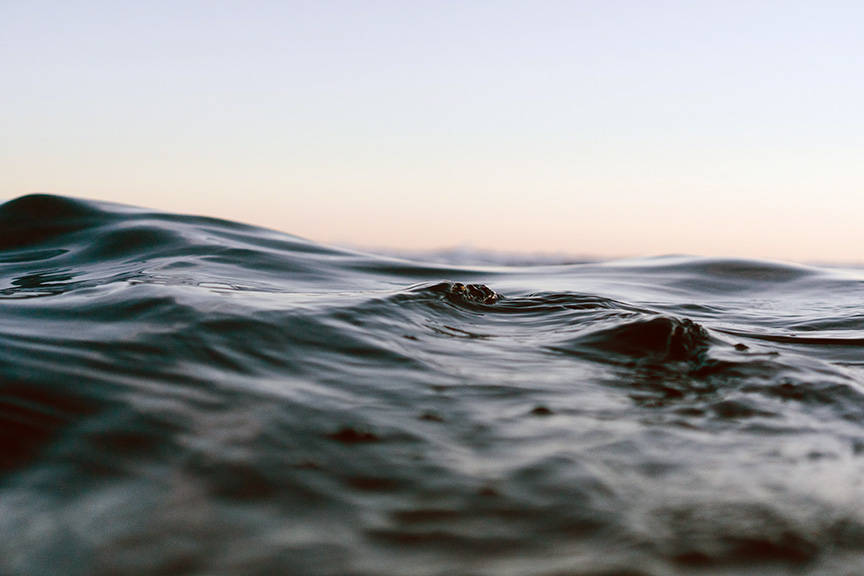When it comes to ocean health, Alaska’s congressional representatives understand the threat that ocean acidification poses to our fisheries, coastal communities, and state economy. According to U.S. Rep. Don Young, “ocean acidification is an ongoing threat that must be tackled head-on if we are to ensure a bright economic future for Alaskans, whose jobs depend on healthy oceans.”
During a visit to Kodiak, Sen. Dan Sullivan stressed the importance of research, saying “on the science side we’re trying to make sure that ocean acidification and other issues that impact the fisheries are completely and fully funded. I’m all over that.”
Sen. Lisa Murkowski has gone even further to address the issue, twice introducing legislation to conduct vulnerability assessments in coastal communities that depend on ocean resources. “If we don’t develop the tools we need to assess and respond, our coastal communities will be hit the hardest by ocean acidification. So much of Alaska’s culture and economy thrive on the many resources that come from the ocean,” she said. “And the impacts are far reaching — from the potential for fishermen to see a decline in catch, resulting in a loss of revenue and jobs to entire communities whose livelihood relies on subsistence fishing. The reality is our ocean is becoming more acidic and will impact our ocean resources, coastal communities, and beyond if we don’t take proactive steps to address it.”
These statements are supported by scientific evidence, which indicates that the combination of rising ocean temperatures and increasingly acidic conditions is serving a one-two punch to Alaska’s marine and coastal environments. Ocean acidification is caused by excess carbon dioxide in the atmosphere, some of which — about 30% — dissolves into ocean waters, lowering their pH and making them more acidic.
This change in ocean chemistry can harm creatures such as oysters, crabs and corals by depleting the calcium carbonate they need to build their shells and skeletons. Fish are also affected by ocean acidification, which decreases their ability to detect predators. These impacts to marine life have ripple effects throughout the food web, threatening the health of entire ecosystems.
Southeast Alaska is likely to experience ocean acidification sooner than many other parts of the world, due to our cold, glacier-fed waters, which are naturally more acidic. As a result, our coastal communities that depend on marine resources for subsistence, cultural purposes and economic value are especially vulnerable. If not addressed, ocean acidification could harm Alaska’s commercial fishing industry, which provides over half of the nation’s seafood harvest and contributes over 30,000 full-time equivalent jobs.
Our representatives are right to recognize that ocean acidification is a serious threat to Alaska’s social, cultural and economic well-being, and their support for research should be applauded. However, studying the issue isn’t going to change the science: ocean acidification is caused by greenhouse gas emissions. Until our leadership comes to grips with this fact, they are exacerbating the problem.
With our small population and already limited infrastructure, Alaskans cannot make a meaningful dent in our country’s carbon footprint on our own. We should, however, accept our share of the collective global responsibility to reduce carbon emissions to avoid the worst consequences of climate change, which is now considered a major problem or crisis by nearly 80% of Americans.
As our federal and state administrations turn their back on this responsibility, it is up to our congressional leadership to safeguard Alaska’s future by driving policies that give us the best chance of mitigating and adapting to unprecedented change.
Guided by sustainability principles, these measures should include energy efficiency and renewable energy solutions, as well as improved response to climate-related disruptions such as erosion, permafrost thaw and fisheries disasters. From proposed tax incentives for improved energy storage to a plan to power the U.S. on 100% clean energy by 2050, there are currently numerous opportunities for them to support these critical policies.
Ocean acidification is just one of a myriad of challenges created by our reliance on fossil fuels, but it is one that has caught the attention of our representatives. Now is the time for Young, Sullivan and Murkowski to confront the root cause of the issue and demonstrate their commitment to protecting Alaska.
• Danielle Meeker is the Climate Campaign Coordinator at Southeast Alaska Conservation Council (SEACC) and former Policy & Program Analyst in the Office of Gov. Bill Walker, where she helped create Alaska’s first state climate policy and action plan. She resides in Juneau. My Turns and Letters to the Editor represent the view of the author, not the view of the Juneau Empire.

